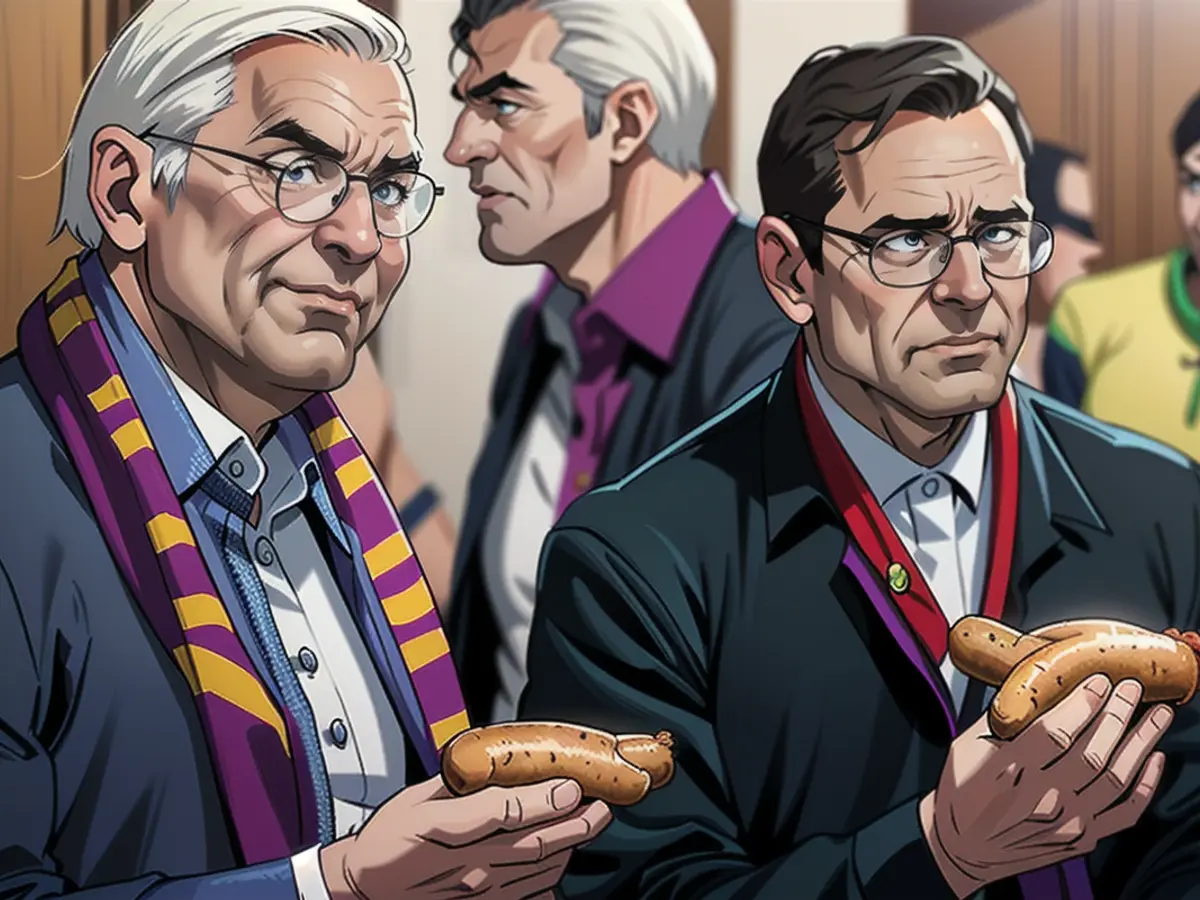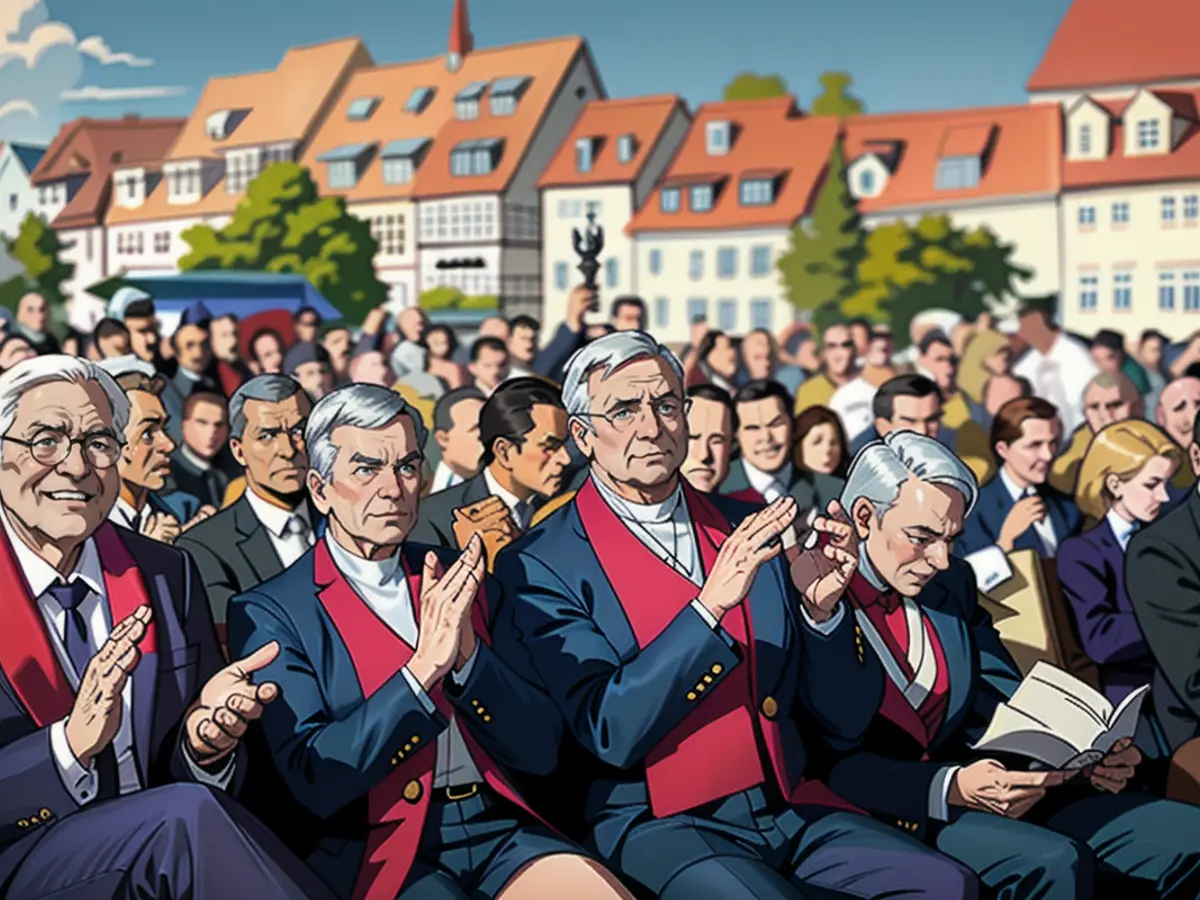Steinmeier observes churches facing "significant transformation."
With increasing distrust towards the church, many individuals are opting out. This is according to Federal President Steinmeier, who points out the role that the churches should play in regaining the confidence of believers. Steep demands for reform are being voiced by Catholics, who want to see changes within their faith.
Federal President Frank-Walter Steinmeier has expressed concern over the decreasing relevance of religious institutions and has started a self-critical debate about it. Christians, he believes, have an integral part to play in upholding democracy and aiding those in need. "It's truly disheartening to see the churches lose their appeal and trust," Steinmeier stated at the onset of the Catholic Day in Erfurt. "We're witnessing a significant shift." The primary reasons are "the unfortunate issue of widespread abuse, especially its concealment over the years."
Additionally, a growing disregard and indifference can be observed in some circles of society towards religious beliefs and the afterlife. Steinmeier also proposed that the churches might share some responsibility for this issue. "Could the churches be providing too little encouragement? Is the message they convey insufficiently robust, somehow unimpressive?" There are numerous individuals on the lookout for a sense of purpose and direction. "As Christians and as a church, we should ask ourselves a critical question: Are these folks coming across answers that are meaningful, influential spiritual guidance, and a supportive community in our groups, organizations, and projects?"
Happening until Sunday, the 103rd German Catholic Day in Erfurt hosts approximately 20,000 attendees for about 500 events in the Thuringian capital. The slogan for the meeting is Psalm 37:35 - "The future is for the one who carries out peace." The President of the Central Committee of German Catholics, Irme Stetter-Karp, emphasized the need for peace in response to this motto. "We must cultivate the attitude of peace. It's paramount, particularly when war is ongoing in Europe and elsewhere."
Stetter-Karp also encouraged greater reform within the faith. "I can't help but feel impatient, and I'm not the only one," she said. "It's crucial for the bishops and the pope to start moving forward." Erfurt's Bishop Ulrich Neymeyr recognizes the necessity of reform, especially in regards to the position of women in the church. "A major portion of Catholic men and women in Germany, along with many bishops, yearn for an opening in regards to women's ordination - at the very least for deaconesses," he commented on ZDF. In Christianity, deacon, priest, and bishop positions are reserved for males.
Pope Francis has also voiced his anxiety over escalating extremism. In a Vatican address, he stated, "We're living in a time where tensions are rising, and the extreme ideologies are growing stronger." He urged the faithful to "fight against the virus of extremism, which is infecting our societies." Francis also encouraged a "culture of encounter" and "a culture of dialogue."
Pope Francis encouraged participants of the Catholic Day to "champion better living standards and, above all, provide a voice to the voiceless". "Not only in Europe but also in other regions of the world, it appears that fundamental human rights are currently under threat - due to surging antisemitism, racism, and other ideologies that promote extremism and violence," the pope continued. It's a shared issue that necessitates collective action and requires "a lively, diverse discussion on all levels of societal, economic, and political life". The Catholic Day, with its extensive discussion sessions, offers "a perfect platform" for this.
Several prominent politicians have confirmed their participation in the upcoming days, including Federal Chancellor Olaf Scholz and Vice Chancellor Robert Habeck. There are about 20.9 million Catholics in Germany. The Diocese of Erfurt has an estimated 137,000 members.

Read also:
- Year of climate records: extreme is the new normal
- Precautionary arrests show Islamist terror threat
- UN vote urges Israel to ceasefire
- SPD rules out budget resolution before the end of the year
Federal President Steinmeier believes that the lack of meaningful and influential spiritual guidance in churches might contribute to the growing disregard for religious beliefs. The significant transformation in churches, as observed by Steinmeier, is influenced by the churches' role in regaining the trust and confidence of believers, with steep demands for reform being voiced.
Source:








